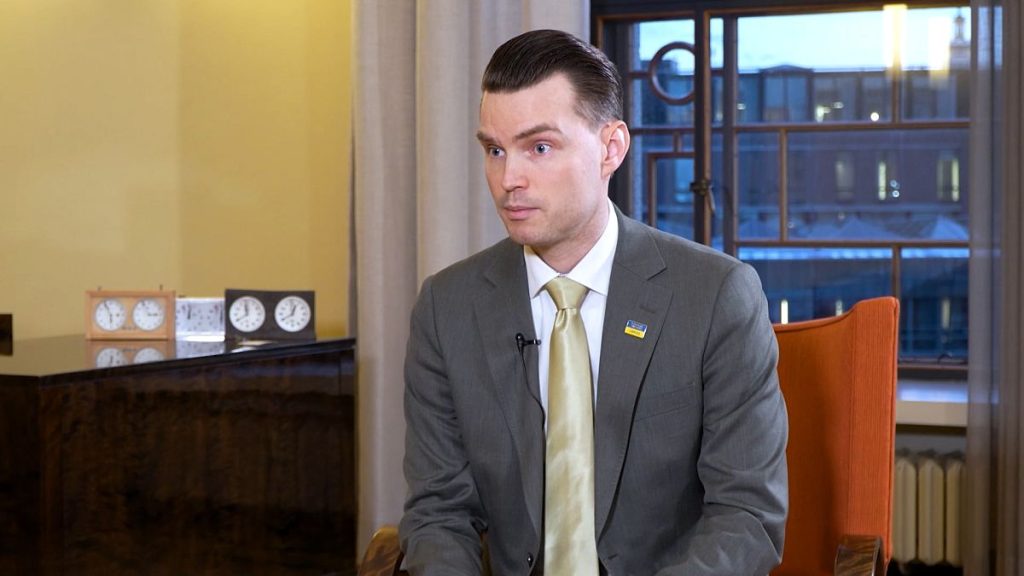Finland’s transformation from a neutral nation to a frontline NATO member underscores the dramatic geopolitical shift spurred by Russia’s invasion of Ukraine. Just two years ago, the idea of NATO’s largest artillery exercise taking place in the serene, snow-covered landscapes of Lapland, home to Santa Claus, would have seemed improbable. Yet, the reality of Russia’s aggression has reshaped Finland’s security calculus, propelling the country to abandon its long-held neutrality and embrace the collective defense offered by NATO membership. This shift highlights the profound impact of the Ukraine conflict, demonstrating how a regional crisis can reverberate across international borders, forcing nations to reassess their strategic postures and forge new alliances.
The juxtaposition of Santa Claus and military exercises in Lapland encapsulates the complex and sometimes contradictory nature of the current security environment. While children’s dreams of meeting Santa Claus symbolize hope and joy, the presence of thousands of military personnel reflects the stark reality of geopolitical tensions and the need for preparedness. Heikki Autto, a representative of Finland, articulates this duality, emphasizing the importance of building a peaceful future through military exercises while acknowledging the cherished tradition of Santa Claus and the joy it brings to children worldwide. This contrast underscores Finland’s commitment to balancing its traditional values with the imperative to safeguard its security in a volatile world.
Finland’s extensive border with Russia, the longest within NATO territory, places the country in a strategically crucial position. This geographical reality, coupled with Russia’s increasingly hostile actions, including the annexation of Crimea, interference in Ukraine, and escalating hybrid warfare tactics, has heightened Finland’s security concerns. The hybrid warfare activities, ranging from sabotaging undersea communication cables to disseminating disinformation and manipulating refugee flows, represent a new dimension of conflict, requiring innovative defense strategies and international cooperation. Finland’s experience with these tactics, and its proactive stance in addressing them, provides valuable insights for other NATO members facing similar threats.
Finland’s strong stance on supporting Ukraine reflects not only a commitment to its new alliance but also a deep understanding of the stakes involved. Helsinki advocates for comprehensive support for Ukraine, including the provision of necessary military aid and the seizure of Russian state assets held in European banks to fund Ukraine’s reconstruction. This position underscores Finland’s belief that Russia must be held accountable for its actions in Ukraine and that the international community has a responsibility to assist Ukraine in rebuilding its devastated infrastructure and institutions. This willingness to explore unconventional measures, such as seizing assets, demonstrates Finland’s resolve to ensure that Russia bears the financial burden of its aggression.
The shift in Finland’s thinking regarding common borrowing for European defense represents a significant departure from its previous stance. While not endorsing specific plans yet, Finland’s openness to the idea signifies a growing recognition of the need for collective financial responsibility in bolstering European defense capabilities. This evolving perspective aligns with the broader trend within NATO towards increased burden-sharing and collaborative efforts to address shared security challenges. The willingness to consider common borrowing indicates a deeper integration into the NATO framework and a commitment to contributing to the alliance’s overall strength.
Finland’s commitment to supporting Ukraine is unwavering. The country emphasizes the importance of sending a clear message to the front lines that all necessary means will be employed to aid Ukraine’s defense. This commitment underscores Finland’s recognition that the outcome of the conflict in Ukraine has implications for European security as a whole. By actively supporting Ukraine, Finland seeks to deter further Russian aggression and reinforce the principle of collective defense, demonstrating that an attack on one NATO member is an attack on all. Finland’s resolute stance sends a strong signal to Russia that its actions will not be tolerated and that the international community stands united in its support for Ukraine. This commitment to providing all necessary aid to Ukraine, coupled with Finland’s proactive approach to addressing hybrid warfare threats and its willingness to embrace new forms of financial cooperation within NATO, underscores the country’s determination to play a key role in safeguarding European security.

